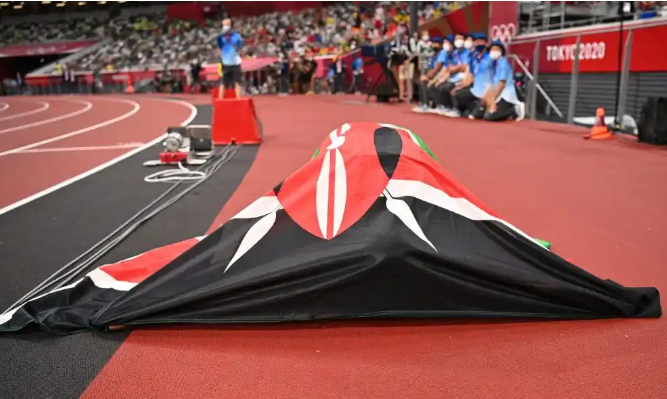A 20-year-old athlete’s promising career was tragically cut short on Friday, September 27, after collapsing and dying during a 3,000-meter race at Kipchoge Stadium in Uasin Gishu County.
Joseph Hussein Njagi, an athlete competing in a scholarship trial, collapsed at the finish line around midday.
Athletics officials rushed Njagi to Uasin Gishu District Hospital, where he was pronounced dead.
According to police reports, Njagi finished the race and appeared distressed as he crossed the finish line.
As officials and teammates looked on in shock, the gravity of the situation became clear.
Medical personnel at the stadium responded quickly, but despite their efforts, the young runner’s life could not be saved.
Police officers from Eldoret Police Station were notified shortly after the tragic event.
They responded by transferring Njagi’s body to the Moi Teaching and Referral Hospital morgue, where a post-mortem will be performed to determine the exact cause of his unexpected death.
The loss of Njagi has sent sorrows through Kenya’s close-knit athletics community.
His death is similar to other recent tragedies involving young athletes whose careers were cut short due to unexpected health complications.
Just weeks before, in mid-September 2024, Kenyan athlete Willy Chelewa collapsed after securing sponsorship for international races in China.
Chelewa reportedly died moments after drinking a cup of black tea, emphasizing the unforeseen nature of such incidents.
The rising number of athlete deaths is causing concern across the country, with many questioning whether more should be done to protect the health of Kenya’s rising sports stars.
The Kenya Athletics Federation has yet to issue an official statement regarding Njagi’s death, but the wider athletics community has expressed its condolences and called for thorough investigations into the health risks that young athletes face.
Njagi was part of a group of young athletes hoping to secure scholarships through outstanding performances at Kipchoge Stadium, which has long served as a training ground for some of Kenya’s most well-known runners.
The focus is shifting to preventative measures that could save athletes’ lives.
Calls for improved health screening, on-site medical support, and monitoring for signs of distress during races are becoming increasingly loud.





















Add Comment